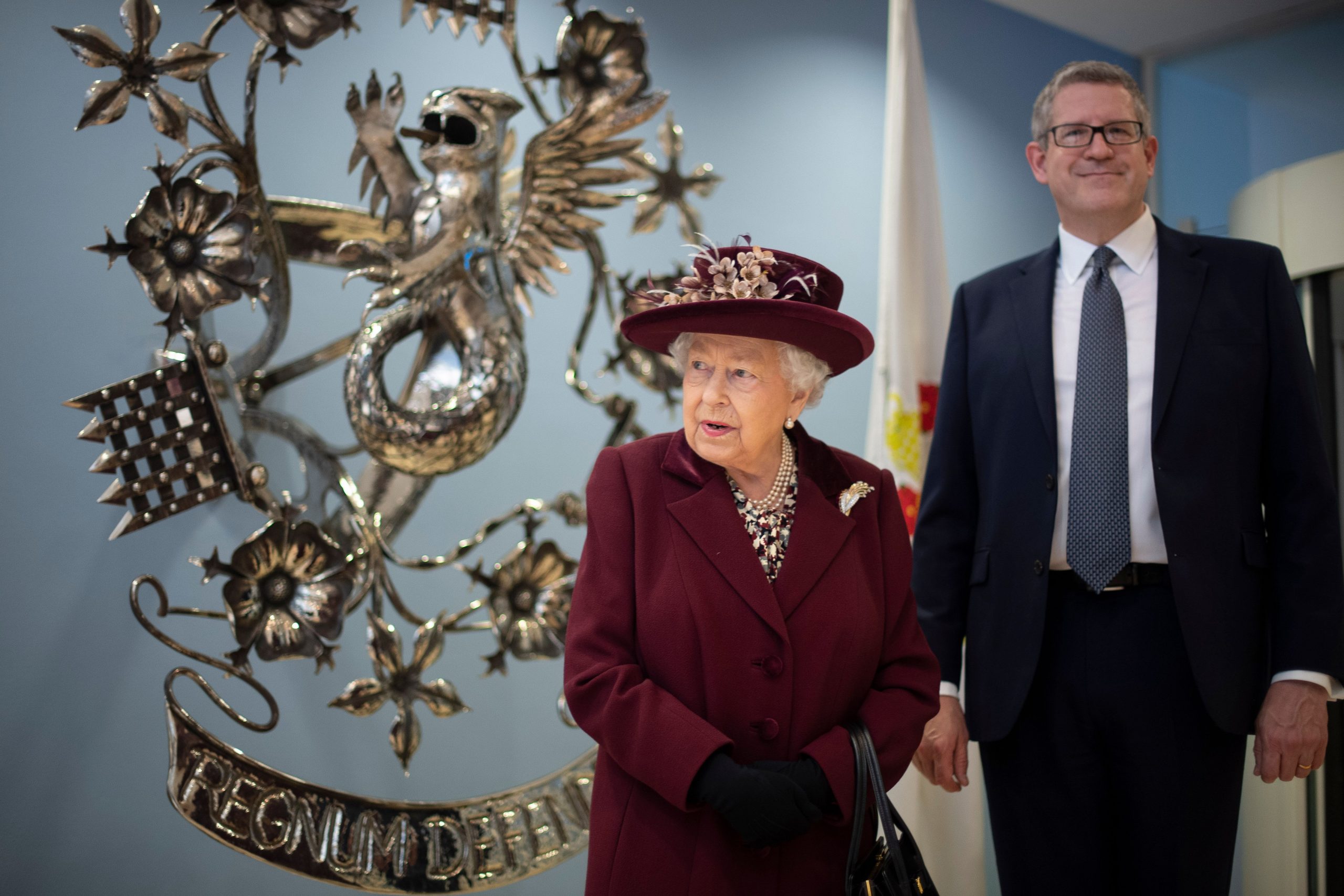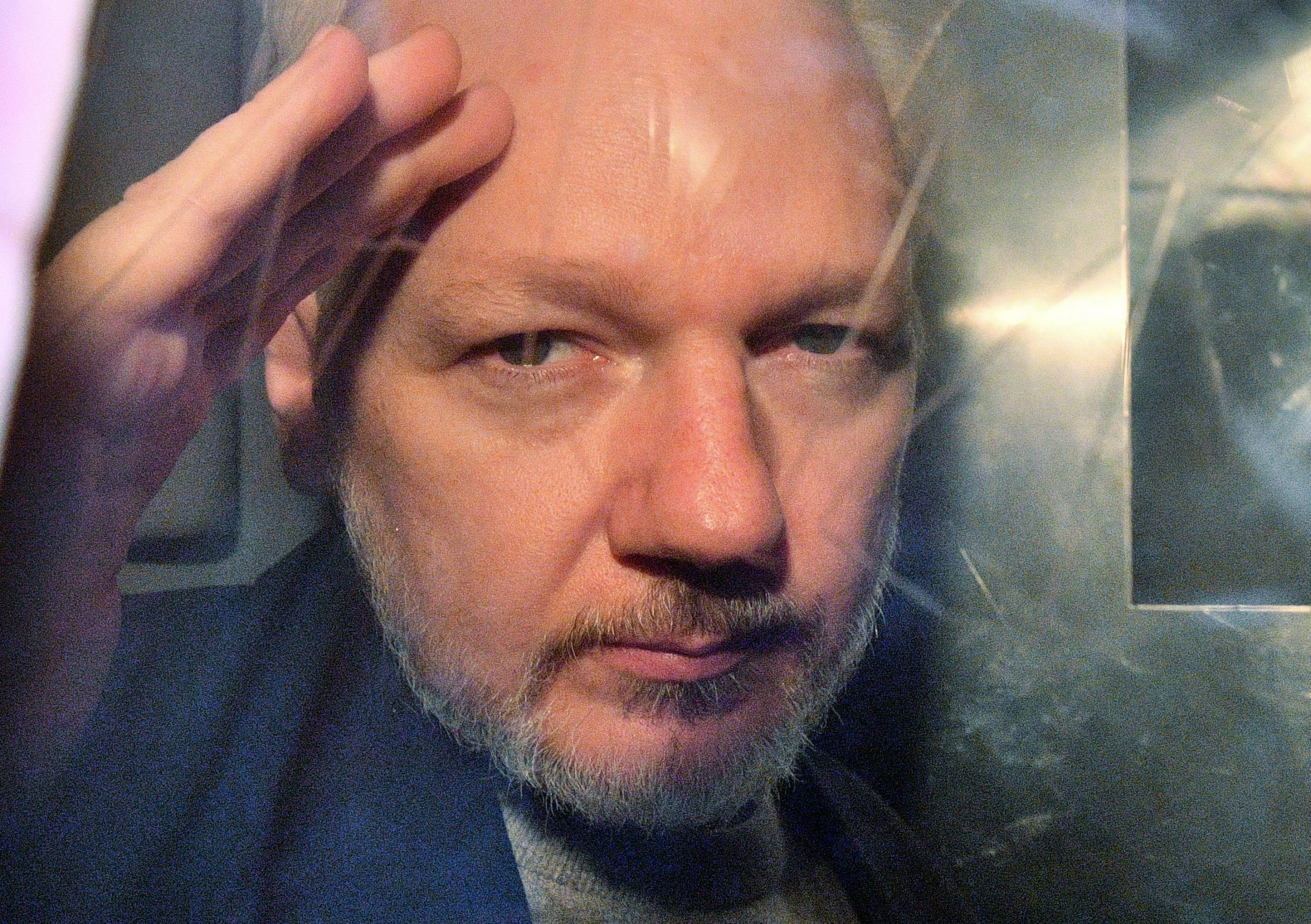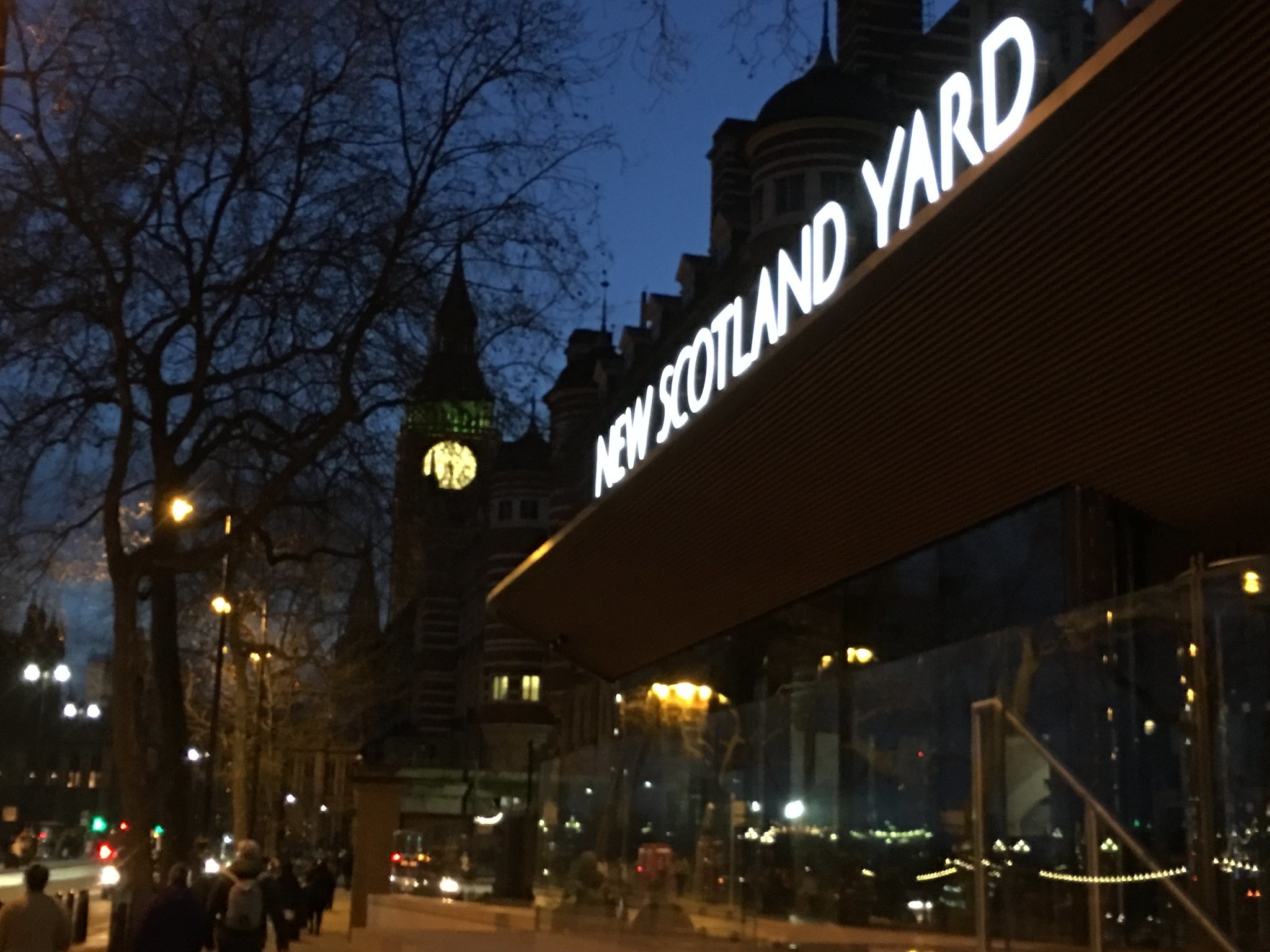Systematic planning or intelligence gathering around health crises does not appear to take place in any UK security agency, whose roles are proclaimed to be to keep the country safe. This is despite at least 18,000 people working for MI5, MI6, Defence Intelligence and GCHQ, which have a combined budget of over £3bn.
It remains unclear what role the heads of MI5, the UK’s domestic security service, and MI6, its foreign intelligence sister organisation, are now playing in government crisis policy-making as part of the COBRA committee.
No head of MI5 or MI6 appears to have ever mentioned publicly the threat posed by a global health pandemic, despite regular interventions positing the threat posed by Russia and terrorism.
Yet the National Risk Register — produced by the British government to assess the threats the country faces — has regularly concluded that a flu pandemic is the “gravest threat” to the UK’s security. One of its recent assessments noted that the consequences may include:
“In the case of pandemic influenza, half the UK population potentially being infected, with between 20,000 and 750,000 additional deaths potentially by its end”.
The report added: “In the absence of early or effective interventions to deal with a pandemic,” there would be “significant social and economic disruption, significant threats to the continuity of essential services… and shortages”.
New analysis suggests that the UK’s intelligence agencies have spent more time identifying left-wing activists or Jeremy Corbyn as threats to British national security than global health pandemics of the kind now affecting Britain.
Paul Rogers, emeritus professor of peace studies at Bradford University, told Declassified UK:
“However we come through this, one thing is abundantly clear: there has to be a root and branch rethinking of what we mean by security.”
Rogers, who is also an honorary fellow at the UK military’s Joint Services Command and Staff College, added:
“That doesn’t just mean the overall role of the armed forces and whether vast capital projects like aircraft carriers are in any sense worth funding, but must extend to the security and intelligence organisations, too.”
On Friday, US officials close to its spy agencies reported that American intelligence agencies “were issuing ominous, classified warnings in January and February about the global danger posed by the coronavirus”. The officials added that the majority of intelligence included in daily briefing papers from the director of national intelligence and the CIA concerned coronavirus. There is no evidence that UK intelligence agencies were providing similar information to the British government in the period, perhaps hampering the response.
‘As serious a threat as terrorism’
As far back as 2005, the UK’s Civil Contingency Secretariat — the Cabinet Office’s emergency planning department — warned that the H5N1 form of avian flu that killed dozens of people in south-east Asia that year was “as serious a threat as terrorism”.
Also in 2005, the then Mayor of London, Ken Livingstone, said that he was against new anti-terrorism laws proposed by the security services because they were inflating the threat. “My experience with MI5 is that they are so often wrong,” said Livingstone, adding, “We’re more at risk from dying of bird flu than we are of being blown up by any terrorist.”
A former director of operations and intelligence at MI6, Nigel Inkster — who served the SIS for more than three decades — said in 2009, “We need to keep terrorism in some kind of context,” adding that it was less of a risk than global pandemics. Inkster, who is now senior adviser to the International Institute for Strategic Studies — a think-tank funded in part by the Ministry of Defence (MOD) and arms manufacturer BAE Systems — recently said the UK government’s approach to coronavirus displayed a “failure to recognise the need for a paradigm shift”.
The UK spends significant sums on its “security services”. Expenditure on the Single Intelligence Account — which covers MI5, MI6, and GCHQ — is predicted by the government to be £2.48bn in 2020-2021. This works out at around £400 for every Briton but does not include Defence Intelligence, an arm of the MOD, whose budget is not known.
A declared 18,000 people work for Britain’s intelligence agencies. GCHQ, the UK’s surveillance agency, says it employs 6,000 people, while MI5 maintains it has 4,000 employees. MI6, meanwhile, says it has 3,500 people on its payroll. Defence Intelligence employs a further 4,500 staff. The UK spends over a billion pounds annually on the salaries of its intelligence personnel.
Yet there is no evidence these agencies have specialist teams working on medical threats like pandemics. Climate change also does not appear to be a priority for any British security agency, despite the British government being aware of it as a “security risk”.
The heads of MI5 and MI6 both have a seat on the UK government’s Civil Contingencies Committee which is currently convened to deal with coronavirus. Better known as the COBRA committee, it can remain in session 24 hours a day during a crisis for quick reaction to events. It is not known what function the security chiefs are performing in this crisis or what expertise they can bring.
The UK government’s response to the coronavirus crisis, which has been criticised for being too slow and for changing recommendations, is likely to reflect the lack of intelligence infrastructure Britain has in place to deal with such a crisis.
A coordinated response infrastructure, which includes the skills of security agencies, could include the provision of accurate information from external intelligence agencies on the spread of the virus internationally, and on how other affected governments are tackling it, including analysis of the veracity of the information they are releasing.
The UK’s domestic security agencies could also provide information on the spread of the virus within the UK, on the potential threats to domestic security, as well as undertake more complex tasks such as tracking infected individuals.
Instead, the British security services appear to spend significant resources surveilling and disrupting peaceful leftwing groups and political figures. In 2017, Stella Rimington, the head of MI5 from 1992 to 1996, said, “I now see in [grassroots leftwing movement] Momentum some of the people we were looking at in the Trotskyite organisations in the 1980s.”
Declassified UK recently counted 34 major national news stories, casting Labour leader Jeremy Corbyn as a threat to national security, which were sourced by journalists to individuals in the British intelligence and military establishment. An MI5 file on Corbyn had been opened by the early 1990s.
Terrorism and Russia only
MI5 describes its mandate as “to keep the country safe”, adding that “we have worked to protect our people from danger whether it be from terrorism or damaging espionage by hostile states.”
MI5 appears to see its remit as stopping there. Its chief, Sir Andrew Parker, has made countless public interventions stressing a threat posed to the UK by Islamic extremist terrorism and Russia since he became director-general in 2013. In 2017, he warned of the “multidimensional threat” evolving “at a scale and pace we’ve not seen before”, referring to terrorism.
Parker has constantly claimed that Russia is a threat. In 2016, for example, he warned that Moscow was acting in “increasingly aggressive ways”, adding, “It is MI5’s job to get in the way of that.” Two years later, he told European security chiefs Russia was unleashing “deliberate, targeted, malign activity intended to undermine our free, open and democratic societies”.
However, Parker appears never to have mentioned in public the threat posed to British security by a global health pandemic, despite regular viral contagions occurring, such as SARS in 2003 and bird flu two years later.
Deaths from coronavirus in the UK in the past few weeks already surpass deaths from terrorism in the past two decades. A House of Commons briefing from 2018 states: “The general trend from around the 1980s is a decrease in the number of people of killed due to terrorism.”
MI5 constantly produces and updates assessments for the threat of terrorism — which currently stands at “severe” in Northern Ireland — but global pandemics appear to not figure in the agency’s threat modelling. This is despite the end of the The Troubles in Northern Ireland, which saw the vast majority of terrorism-related deaths in the UK.
Last week, a previously secret unit of intelligence specialists at MI5 — named the Joint State Threats Assessment Team (JSTAT) — was revealed to be giving advice to the British government “on potential threats by hostile states including the deployment of spies, assassinations, attempts to disrupt elections and cyber attacks”. The threat posed by viral pandemics was not mentioned. The fact that the existence of JSTAT has been revealed suggests that, if MI5 does have a medical intelligence unit, there would be little reason for it to be kept secret in the current crisis.
Keeping the UK safe?
MI6, also known as the Secret Intelligence Service (SIS), says “our people work secretly around the world to make the UK safer and more prosperous”. It describes its “three core aims” as “stopping terrorism, disrupting the activity of hostile states, and giving the UK a cyber advantage”.
In fact, MI6 is closely tied to promoting UK corporations, propping up favoured autocratic regimes, and often works with the UK military, particularly the special forces, on secret combat operations around the world which cannot be scrutinised by parliament or the public.
The chief of SIS since 2014, Alex Younger — who has a military background — has never publicly mentioned a viral pandemic originating in a foreign country as a threat to the safety of people in Britain. There is no evidence SIS has put any intelligence-gathering it might undertake on global health pandemics into the public domain.
Neither does the Defence Intelligence organisation in the MOD, which has 4,500 staff — two-thirds belonging to the military — appear to have a facility dedicated to health pandemic issues. Led by Lieutenant General Jim Hockenhull, its sole remit is to “inform defence research and equipment programmes; and to support military operations”.
General Hockenhull has never publicly mentioned the threat of viral pandemics to Britain. However, 20,000 UK troops have now been readied to “assist” across Britain during the coronavirus pandemic.
No focus
By contrast, the UK’s closest intelligence ally, the United States, has a dedicated medical intelligence unit within the CIA, which is giving congressional intelligence committees daily briefings on the spread of the virus. In addition, the US Defense Intelligence Agency has a National Center for Medical Intelligence headquartered in Maryland which is instructed by the Pentagon to undertake “collection, evaluation, and all-source analysis of worldwide health threats and issues”. The centre is now the “clearing ground for classified information and analysis related to the coronavirus outbreak”.
The National Cyber Security Centre (NCSC), which was created by GCHQ in 2016 to focus on “cyber threats”, has made the only public intervention so far by a British intelligence agency on coronavirus. It has warned that a range of attacks are being conducted by cyber criminals to make money out of exploiting people’s fears over the pandemic.
But there is no evidence that GCHQ has a dedicated department dealing with medical emergencies like coronavirus. It has been, however, very active in monitoring the UK public and conducting offensive cyber operations.
Taking the bulk of the intelligence budget in the UK, GCHQ was revealed in 2013 to have been secretly intercepting, processing and storing data concerning millions of people’s private communications, including people of no intelligence interest — in a programme named Tempora. GCHQ has also operated offensive cyber operations against countries such as Argentina and plays a key role in UK military interventions overseas.
GCHQ could play a socially useful role to address the coronavirus crisis. The WHO has stated that an important way to stop the spread of a virus is “contact tracing”, involving the painstaking work of identifying people who may have come into contact with an infected person. GCHQ could help this effort by drawing on its experience in processing large quantities of information.
The Investigatory Powers Act which was passed in the UK in 2016 effectively already gives the British state licence to collect personal data on any target without a warrant. On Thursday it was reported that BT, which owns UK mobile operator EE, was talking with the British government about using its phone location data to monitor whether coronavirus limitation measures, such as asking the public to stay at home, are working.




